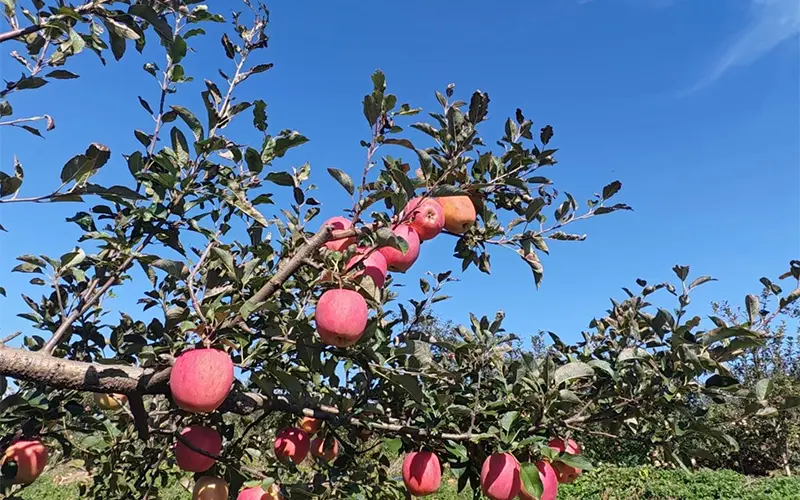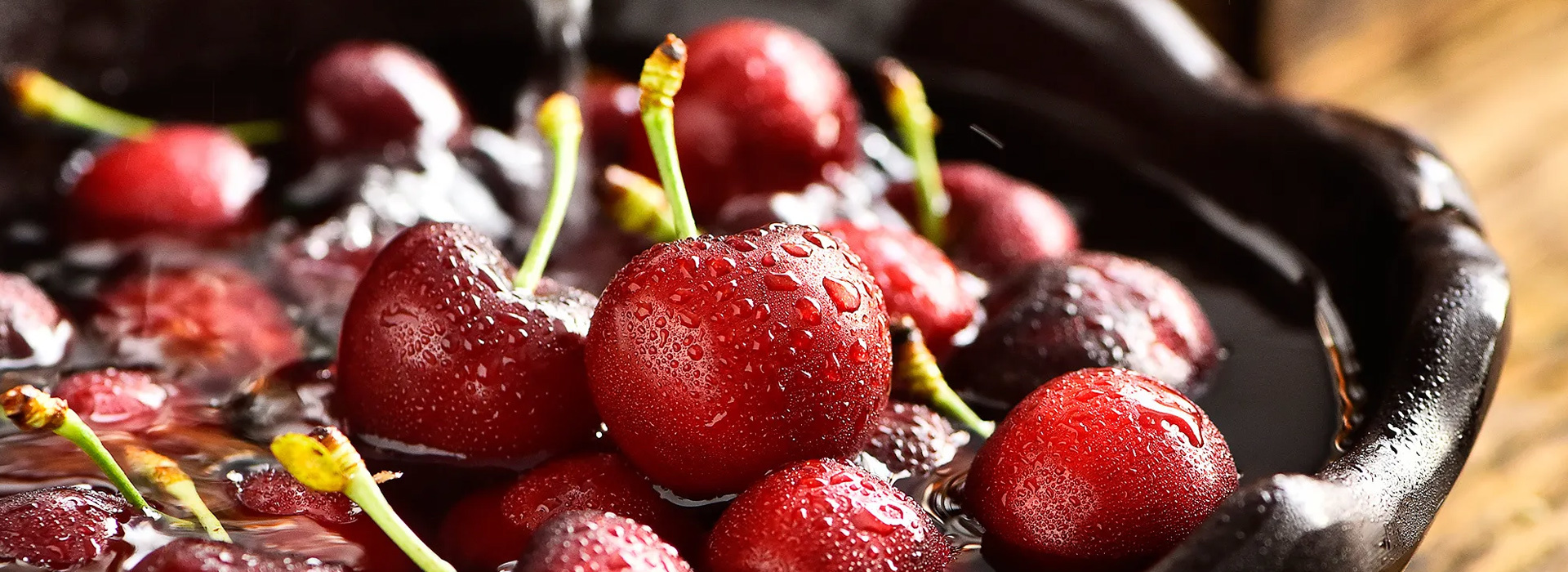"Apple Capital" Qixia: Polishing the Golden Brand of "Qixia Apples"
Release date:
2023-12-13

In China, apples are grown in Shandong; in Shandong, the best apples come from Yantai; and in Yantai, the finest apples thrive in Qixia.
“Qixia Apples” are Qixia City’s well-deserved golden brand. How can we make this golden brand shine even brighter?
Recently, the "Opinions on Deeply Promoting High-Quality Development of Qixia Apple Industry (2023–2025)" (hereinafter referred to as the "Opinions") were issued. This follows the earlier documents—the "Implementation Opinions on Accelerating the High-Quality Development of the Apple Industry (2021–2023)" and the "Qixia Apple" Plan for Cultivating Competitive and Characteristic Industries (2021–2025)"—marking yet another significant policy released by Qixia City to drive the high-quality growth of its apple industry.
The "Opinions" outline the ambitious blueprint for the future three-year development of "Qixia Apples": the construction of a robust, well-structured, scientifically arranged apple industry chain—characterized by complete linkages, rational structure, strategic layout, clustered entities, and collaborative sharing—is now essentially complete. Meanwhile, the apple-growing area will remain stable at 1 million mu, with an annual production of 2.2 million tons of high-quality apples.
The "Opinions" also introduced multi-dimensional and comprehensive data indicators: the standardization and scale of the industry have significantly improved, with the mechanization level in modern apple orchards reaching 60%; the variety structure has been further optimized, achieving a coverage rate of 95% for high-quality apple varieties; the commercial processing rate of apples has risen to over 95%, while the proportion of cold-chain logistics has exceeded 85%. Meanwhile, the total output value of the entire apple industry chain is expected to reach 22 billion yuan. Additionally, the regional public brand "Qixia Apple" continues to strengthen its influence, with its brand value surpassing 7.5 billion yuan.
Happy to see the bountiful harvest—Qixia Orchard has transformed from its old appearance into a vibrant new look.
The apple industry is the cornerstone of Qixia's agricultural sector, serving as the "cash cow" for 300,000 fruit farmers—and also acting as a powerful "booster" in accelerating the comprehensive revitalization of rural areas and significantly boosting farmers' incomes. In 2021, Qixia City launched a three-year action plan for high-quality apple development, yielding remarkable achievements in the apple industry.
——The primary, secondary, and tertiary industry chain is fully integrated. Qixia City has cumulatively renovated 502,000 mu of aging, low-efficiency orchards and has meticulously developed 120,000 mu of demonstration orchards meeting high standards. The city boasts 21 deep-processing enterprises for fruit products, with an annual processing capacity exceeding 600,000 tons. Additionally, there are 39 key agricultural industrialization leading enterprises at or above the municipal level. Moreover, Qixia is home to more than 630 cold-air and controlled-atmosphere fruit storage facilities, boasting an annual storage capacity of 1 million tons. The region has also established over 100 tourism-focused attractions, including provincial-level strong towns, demonstration sites, boutique picking gardens, "happy farms," and star-rated agritourism facilities, gradually fostering a diversified and integrated modern agricultural system centered around the apple industry, while seamlessly blending secondary and tertiary sectors.
——Leading with industrial technology innovation. Qixia City firmly positions technological innovation as the primary engine driving high-quality development of its apple industry, guiding scientific and technological resources to converge within the sector. Relying on the nation’s pioneering establishment of Academician Shu Huairui’s workstation and the Qixia Apple Industry Research Institute affiliated with the Chinese Academy of Agricultural Sciences’ Fruit Tree Research Institute, the city has implemented more than 20 major national and provincial-level science and technology projects, while also attracting over 30 high-caliber talents, including academicians from the Chinese Academy of Engineering and leading experts from the National Apple Industry Technology System.
— Fruit industry: ecological, green, and highly efficient. The city has achieved full coverage of pollution-free apple production, with 18 enterprises certified under the "Three Products and One Standard" program. Additionally, there are 3 nationally renowned agricultural trademarks held by companies in the sector, 10 provincially recognized famous trademarks, and 18 provincial-level agricultural standardization demonstration bases. Emphasis is placed on comprehensive quality control and advanced quality-testing technologies throughout the entire apple production process. A robust fruit-quality and safety supervision and testing system has been established, spanning cities, towns, and villages. Last year, Qixia apples were officially listed in the national "Famous, Special, High-Quality, and New Agricultural Products" directory.
Face the challenges head-on and conduct in-depth research to analyze the development bottlenecks.
Summarizing achievements is to boost confidence; identifying challenges is to move forward more effectively.
To accurately pinpoint the challenges facing the Qixia apple industry, the Qixia City Fruit Industry Development Service Center conducted an in-depth调研. A nearly 9,000-word report titled "Suggestions on Implementing the Fruit Industry Strengthening-Chain Project to Accelerate High-Quality Development of Qixia Apples" directly addresses numerous issues plaguing the sector, including "insufficient growth momentum," "declining industrial profitability," and "slowed transition from old to new production capacities," while also analyzing the underlying causes. Strikingly, the data reveals that "over 80% of fruit farmers in Qixia City are aged 60 or older!"
At the root of the issue lies the aging workforce in apple production and management systems, driven by urbanization. As population aging accelerates alongside ongoing urbanization, agriculture is losing its ability to attract young people, leading to an increasingly aged fruit-management workforce and a severe shortage of rural labor.
The aging of fruit farmers also brings about a "technical" challenge: limited by their educational levels, these farmers have lower capacity to adopt and understand new technologies. Moreover, management practices remain inconsistent, with significant variations not only between individual households but also across different villages, leading to inefficient approaches in apple cultivation. At the same time, the aging population of fruit farmers has intensified the issue of aging apple trees—many growers are reluctant to "replace old trees with new ones." As a result, orchards with trees over 20 years old now account for more than 20% of Qixia's total orchard area, resulting in high investment but low productivity.
Tags:
Next page:
Share to



